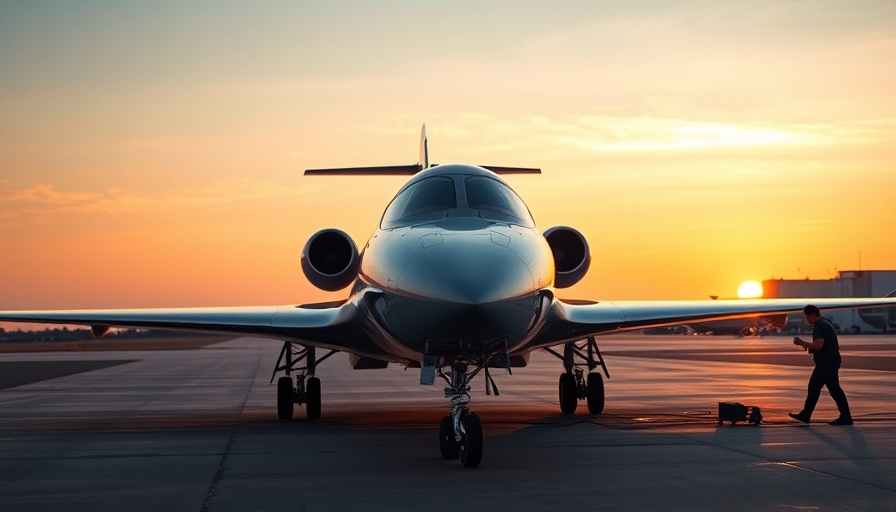
Supersonic Flight: A New Era or a Step Backward?
The recent successful test flight of Boom Supersonic's XB-1 aircraft has ignited conversations about the potential revival of supersonic travel. Among aviation enthusiasts, this milestone sparks joy and rekindles dreams of halving transoceanic flight times. However, those of us concerned about the climate crisis face a sobering reality: how the return of this ultra-fast travel may exacerbate our fight against global warming.
The Climate Cost of Speed
As high-speed flight gains traction, the aviation industry—currently responsible for approximately 4% of global warming—is at a crossroads. Projected increases in air travel could see emissions from aviation double by 2050 if trends continue unchecked. Supersonic aircraft will likely exacerbate this issue, utilizing between two to nine times more fuel per passenger than conventional jets. Such figures raise critical questions: is the demand for faster air travel worth the detrimental impact on our climate?
The Pollutants of Higher Altitudes
Supersonic travel comes with its own set of environmental issues. Beyond increased fuel consumption, operations at higher altitudes raise concerns about the release of pollutants such as nitrogen oxides and black carbon. These pollutants can have significant warming effects, creating a ripple effect that amplifies greenhouse gas emissions. That makes it imperative to consider if our desire for speed comes at too high a natural cost.
Sustainable Aviation Fuels: Can They Save Us?
Proponents of the revival argue that sustainable aviation fuels (SAFs) could bridge the gap. While they hold the potential to eliminate the greenhouse gas emissions associated with traditional jet fuels, the current reality is stark. In 2024, SAFs accounted for less than 1% of jet fuel supplies, and their cost remains prohibitive, often several times higher than fossil fuels. Skepticism abounds regarding how quickly SAFs can become affordable and widely available as Boom progresses toward the development of its full-scale aircraft, Overture.
The Future of Supersonic Travel: Innovation or Regret?
As the conversation around reviving supersonic travel evolves, industry leaders must grapple with the tension between innovation and climate responsibility. Decisions made in the next few years will be crucial in defining the future of air travel. Emphasizing sustainability in aviation must become a priority, balancing the thrill of speed with the urgent need to mitigate climate change. Will the patterns of development yield a sustainable travel model, or will we look back and view supersonic flight as a missed opportunity for true environmental stewardship?
 Add Row
Add Row  Add
Add 




Write A Comment